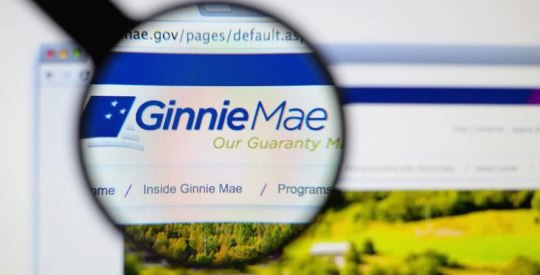(Update 1: incorporates remarks from a press representative that suggests Gulf Stream will not look to invest directly in the mortgage space) Despite a track record that would make the most steeled trader nervous, some firms now appear willing to consider acquisitions of distressed private-party mortgage-backed securities in the hopes that the investments have been devalued enough by ongoing market turmoil to present a classic value play. Reuters’ Al Yoon reported Monday afternoon that hedge fund T2 Partners LLC said it was buying distressed RMBS on a bet that underlying losses will be less than expected. “For the first time in our 10-year history we are buying distressed debt, and we are selling equities to do it,” founder Whitney Tilson said at the Reuters Investment Outlook Summit in New York, according to the story. Telling here are two salient points: for one thing, the firm isn’t betting big on the battered market for subprime and Alt-A RMBS, as it’s committed somewhere between 10 and 25 percent of capital in a $100 million fund towards the sector. For another thing, T2 is traditionally an equities investor, so it may be wading into waters it isn’t entirely familiar with. And, to be sure, the waters of private-party RMBS market have been frigid for the past few months — and even that might be an understatement. There has been effectively no trading in the space since the credit markets blew up, sources say, and those that have attempted to wade into the market for RMBS too early in the cycle have literally blown up. In February, London-based Peloton Partners, a high-flying hedge fund managing by former Goldman Sach whiz Ron Beller, imploded; the firm had bet heavily on the idea that the private-party MBS market was due for a rebound. Other early investors were burned, too, making similar bets — Carlyle Capital Corp. defaulted on more than $16 billion in debt used to leverage its investments into MBS during March. “Peloton dispelled the early euphoria on distressed MBS assets,” Sadie Gurley, who heads up whole loan trading at Marathon Asset Management in New York, said in a recent story in HousingWire Magazine (“Gold Rush, or Fool’s Gold?”, by Darrell Delamaide, Sept/Oct 2008; click here to subscribe). The result thus far has been a retrenchment of trading focus into whole loans, which Gurley said provide the opportunity to influence a positive outcome for investors. “In MBS, you have credit enhancement, but you give up control,” she said. That said, even in September, Marathon was purchasing some distressed MBS at discounts of 70 percent or more when it made sense — although HousingWire‘s sources suggest that until recently, those deals weren’t nearly as common as most might expect, for various reasons. Now, it appears that investors are gearing up for another run at what at least some investors say they expect to become a burgeoning “junk bond” market over the next 18 to 36 months. Beyond T2, Charlotte, N.C.-based Gulf Stream Asset Management signaled Tuesday morning that it was ready to jump back into the market for credit derivatives, although a firm spokesperson said the company was not looking to invest in mortgage-backed derivatives; the firm said it was more generally “aggressively pursuing an expansion strategy to capitalize on current market opportunities,” establishing a credit dislocation fund and a multi-strategy credit hedge fund. It did not specify in further detail what sort of credit derivatives it planned to focus on. Gulf Stream is an institutional asset manager with $3.8 billion under management, and was a large player in the once-burgeoning space for collateralized debt obligations (CDOs) and collateralized loan obligations (CLOs). “The current market presents a historic level of relative value in the credit markets, which affords us the opportunity to broaden the company’s investment activities,” said Mark Mahoney, president of Gulf Stream Asset Management. The firm has opened up a New York-based office this week, and hired two industry veterans to fill key leadership roles. Mark Zusy, who formerly headed up CDO trading at Lehman Brothers, was named chief financial officer and will manage the firm’s New York office, and Sukai Liu, a long-time investment manager, was appointed head of hedge fund portfolio management. T2’s Tilson told Reuters that the opportunity in distressed RMBS may only last through the end of the year, however, as portfolio managers look to sell off positions before December 31. But other sources suggest that regardless of the driver of current trading activity, it may not be long before holders of many RMBS securities have enough capital to manage distressed asset sales. “The challenge here is that selling at a loss can drive other problems on the balance sheet,” said one hedge fund manager that spoke with HW, and asked not to be named. “Solving that means seeing the light at the end of the tunnel in terms of capital strains, and being comfortable taking the hit to push questionable assets off the books.” Time will tell, of course, if investors’ seemingly sudden optimism is a harbinger of things to come. But in the meantime, Tilson suggested to Yoon and Reuters that his fund is seeing a return of 30 to 70 percent on capital. Not bad business, if you can get it. Write to Paul Jackson at [email protected].
Firm Wades Back into Distressed RMBS; Is Timing Right?
Most Popular Articles
Latest Articles
Ginnie Mae President Alanna McCargo to resign
Alanna McCargo announced her resignation from the top post at Ginnie Mae effective May 3



